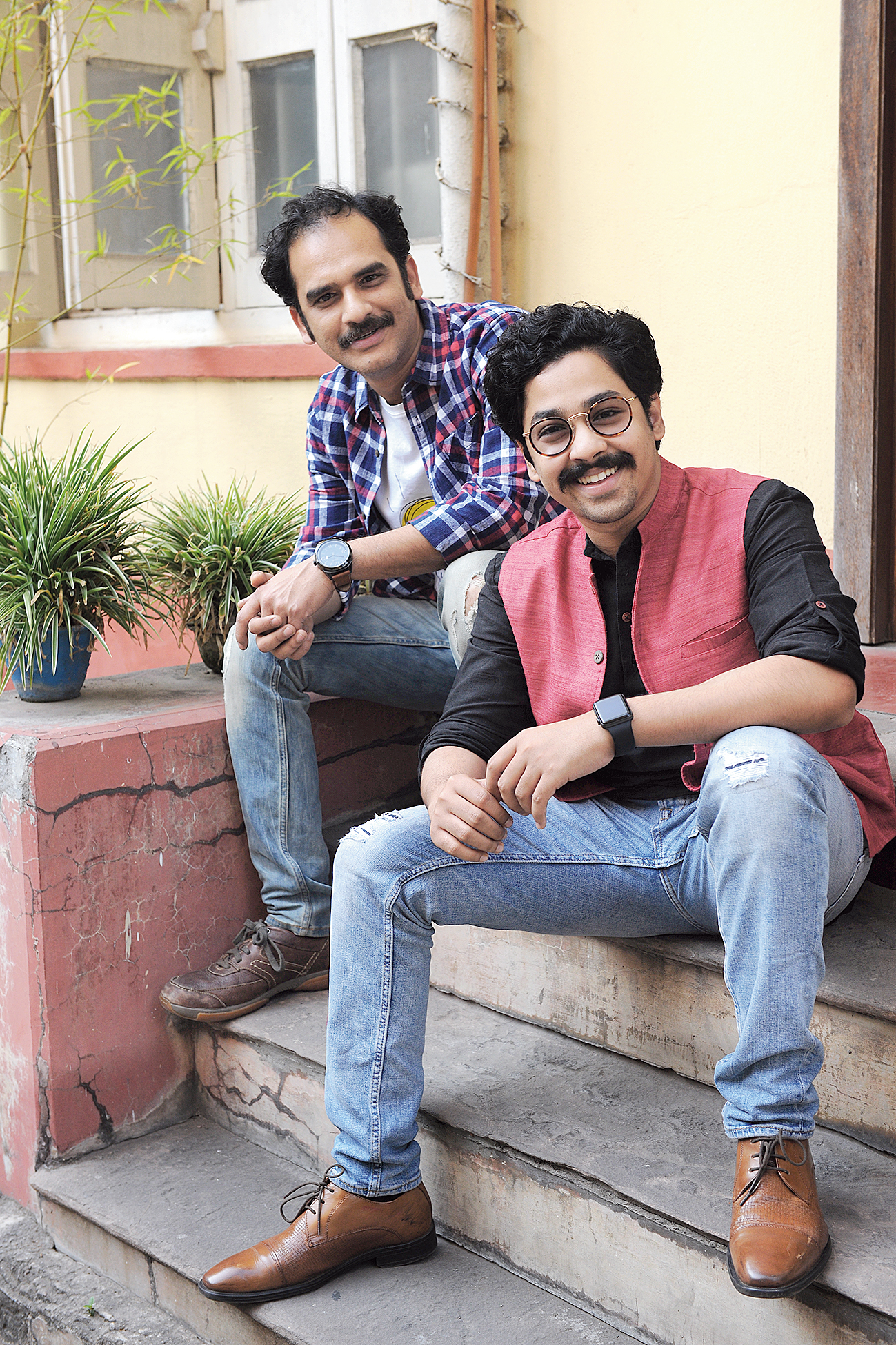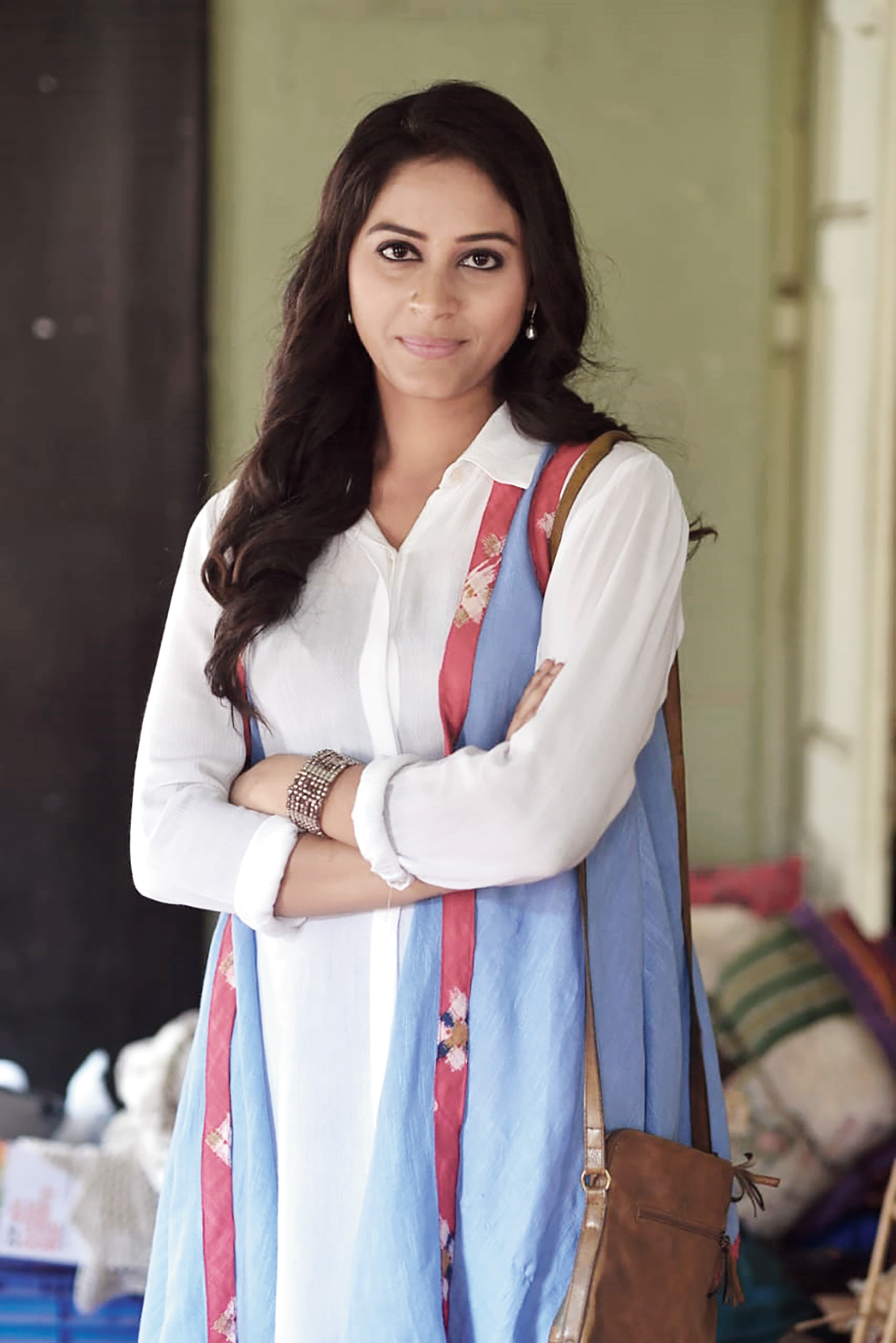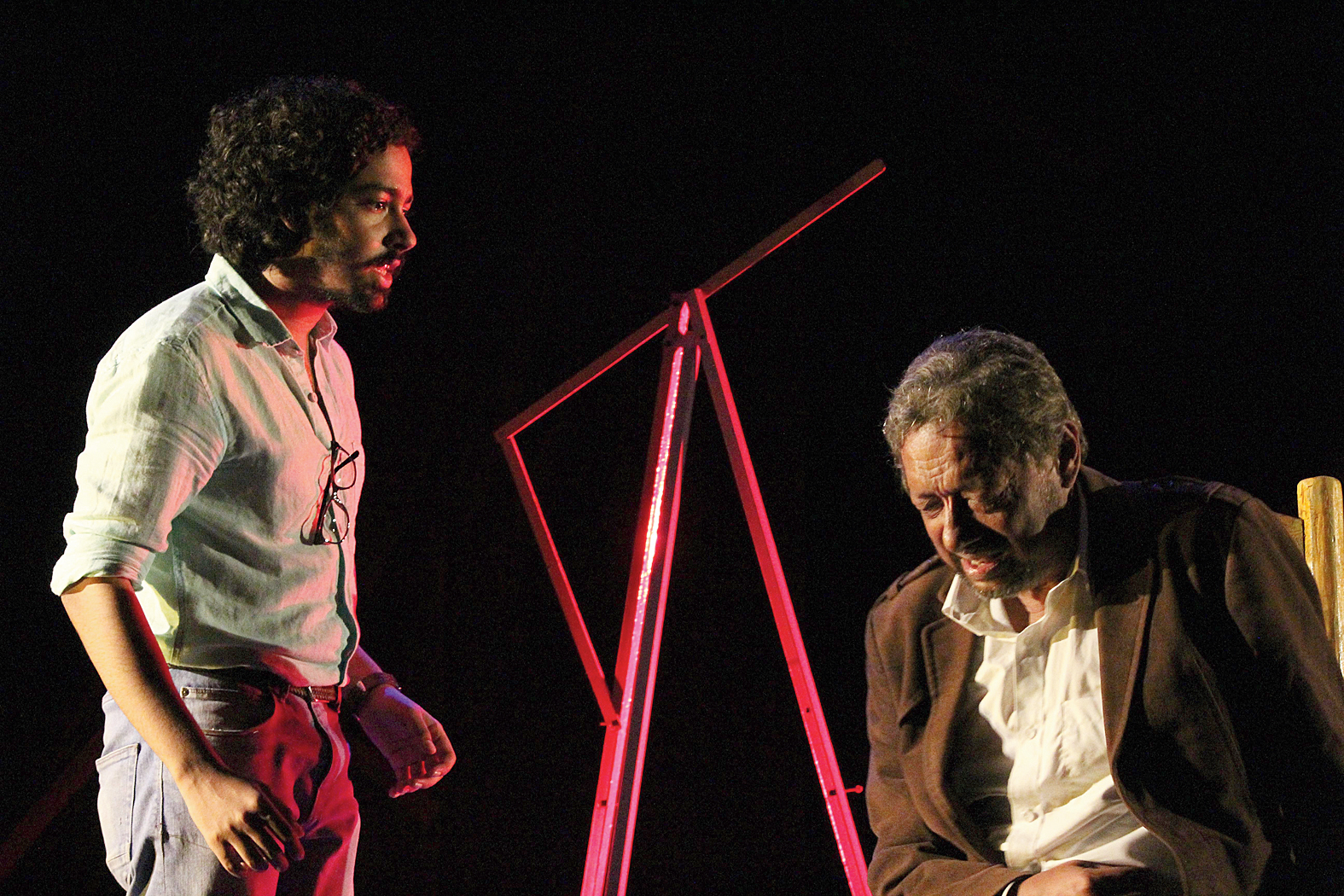This love affair has come a long way. Theatre has always found a special place in the hearts and minds of Calcuttans and audiences across Bengal. In spite of various challenges, the passion to stage plays and be a part of a movement remains undeterred among artistes. But the Covid-19 pandemic has been unsparing to this community like it has been to most other professions and has cast a shadow on the careers of many theatre artistes, making sustenance difficult. During such difficult times, when artistes are adapting to digital platforms to keep their passion alive and reach out to people with their creations, is theatre also adapting to new ways to survive? Four actors share their thoughts with t2 on the impact of the pandemic on the theatre community and the way forward...
Anirban Bhattacharya

Anirban Bhattacharya Sourced by The Telegraph
Are there new ways theatre artistes are exploring to stay connected to their art?
Firstly, this pandemic is forcing us to be under lockdown and maintain social distancing. The first picture is that of devastation for people who survive through theatre. Thoughts of how everything is going to be maintained is definitely coming to our minds. We are trying to reach out to people in need of help. As far as exploring new ways are concerned, for individual actors, they can work with individual tools. But the collaborative event is called theatre and that is not being possible now, considering the present situation.
Certain things such as the stage, live audience, rehearsals are perhaps very intrinsically associated with experiencing and practising theatre. Even if many thespians are trying new ways to communicate with people, the response from the live audience is missing. What do you feel about such experiences?
Theatre is a different experience, it is not cinema. It is a performance. However, many people are choosing to express in a different way, which is performance art. And all this has no connection with the pandemic. It was already there. Marina Abramovic is doing performance art for a long time now. And many others are doing so. However, I doubt if it could be considered as ‘theatre’ in every sense of what the term or the experience entails.
Do you think there is a possibility that interactive digital theatre could be the next step forward or could coexist if things take longer time to resume?
I came to know about the interactive theatre on the web through WhatsApp and text messages. If I say that this is not theatre then I will sound like a culture jethu. This is theatre and this is not — I am no one to say. But yes, this cannot replace the fundamental or prevalent ways in which we are practising theatre. It will be a device but it won’t replace. It can coexist.
Riddhi Sen

Riddhi Sen Sourced by The Telegraph
Are there new ways theatre artistes are exploring to stay connected to their art?
For the last three months, we (Riddhi, Rwitobroto, Ujaan and others) have formed a WhatsApp group called Shoubhratritto to support theatre workers, so that they can sustain themselves. We formed the group so that people can come forward to donate. But theatre is such an art form, we can do a short film from home but we can’t sustain like that. We can do digital theatre. But the audience for theatre will always want to go and see. This year in May we celebrated 28 years of our theatre group Swapnasandhani, so we did a video from home and uploaded it. Our play Taray Taray is also available online now so that people can come forward and donate for the theatre workers.
Theatre is an art form where the camera has no connection, so it is a live experience. For a musician also the recorded thing is very different from a live performance. Every medium has a different structure. The root of theatre is it should be performed live. In theatre people don’t want to see blood coming out, that kind of realism is not needed, people can imagine that. I can show Calcutta or New York or any place I want to in theatre, but in film, I need to go to that place to include that in the film. So, we cannot create it digitally because of the structure of the art form. Yes, budget and workforce, all of that need to be under restrictions. But I don’t think people will be scared to go and watch theatre post-pandemic. But there will be different rules.
Do you think there is a possibility that interactive digital theatre could be the next step forward or could coexist if things take long to resume?
Everything will coexist. We are coexisting with too many things that we like or dislike. I am against interactive theatre, I am also against interactive cinema. Certain things are beyond technology and beyond scientific explanation. In theatre, the emotions are so pure that people would like to witness it live. Even if there is a space to coexist, I would desire that live interaction. Many people would desire that. It is like the human touch. We all desire it. Online shaking hands won’t be able to replace what a simple human touch does. Eventually, things will get better.
What are the major challenges that theatre is facing?
It has been immensely challenging. So many people are involved — set designers, people who do the lights. There are so many theatre workers and actors who live in the suburbs but work with city-based groups, they are not being able to commute. So theatre community as a whole is facing a great problem. Even if I leave the psychological problem aside, the problem is we can’t earn from theatre here and that is the sad news. And it is not so in many places around the world. People can earn from theatre but not here. Even before the pandemic, we were not in a good state. We were already facing challenges. But the lockdown just added to it. I am grateful to a lot of people who are trying to help us from all over the world by donating and helping us to reach out to those in need.
Saoli Chattopadhyay

Saoli Chattopadhyay Sourced by The Telegraph
What are the major challenges that theatre is facing now?
The major challenge right now is economical. For three months there has been no work at all. Not just actors, the technicians, the make-up person, the person who does lights... for everyone. Probably for many, it will appear like a luxury to earn a living solely out of theatre in the post-Covid situation. Funds have been created in the past few months but that cannot be a permanent solution.That is very little money, not enough to support a family. For those who are involved with theatre on a full-time basis, life has become very difficult for them.
Even after we reopen and conduct shows at various auditoriums, the audience will be limited. But we will not be able to increase ticket prices. No one would be willing to pay
Rs 500 instead of Rs 100. But we will have to pay the auditorium to conduct shows. So, obviously the remunerations of actors will decrease. That will make a lot of full-time theatre artistes rethink about considering it as a profession.
Are there new ways theatre artistes are exploring to stay connected to their art?
Theatre is all about live performance. It is true that with the help of Internet and social media platforms people are doing a lot of things during the lockdown. The question is even if we open, how will people come and how will actors act maintaining social distancing. Body contact is a part of performance. For serials, a lot of new rules are being followed. Through the use of camera techniques a lot can be done. But on stage, maintaining social distance is not possible.










